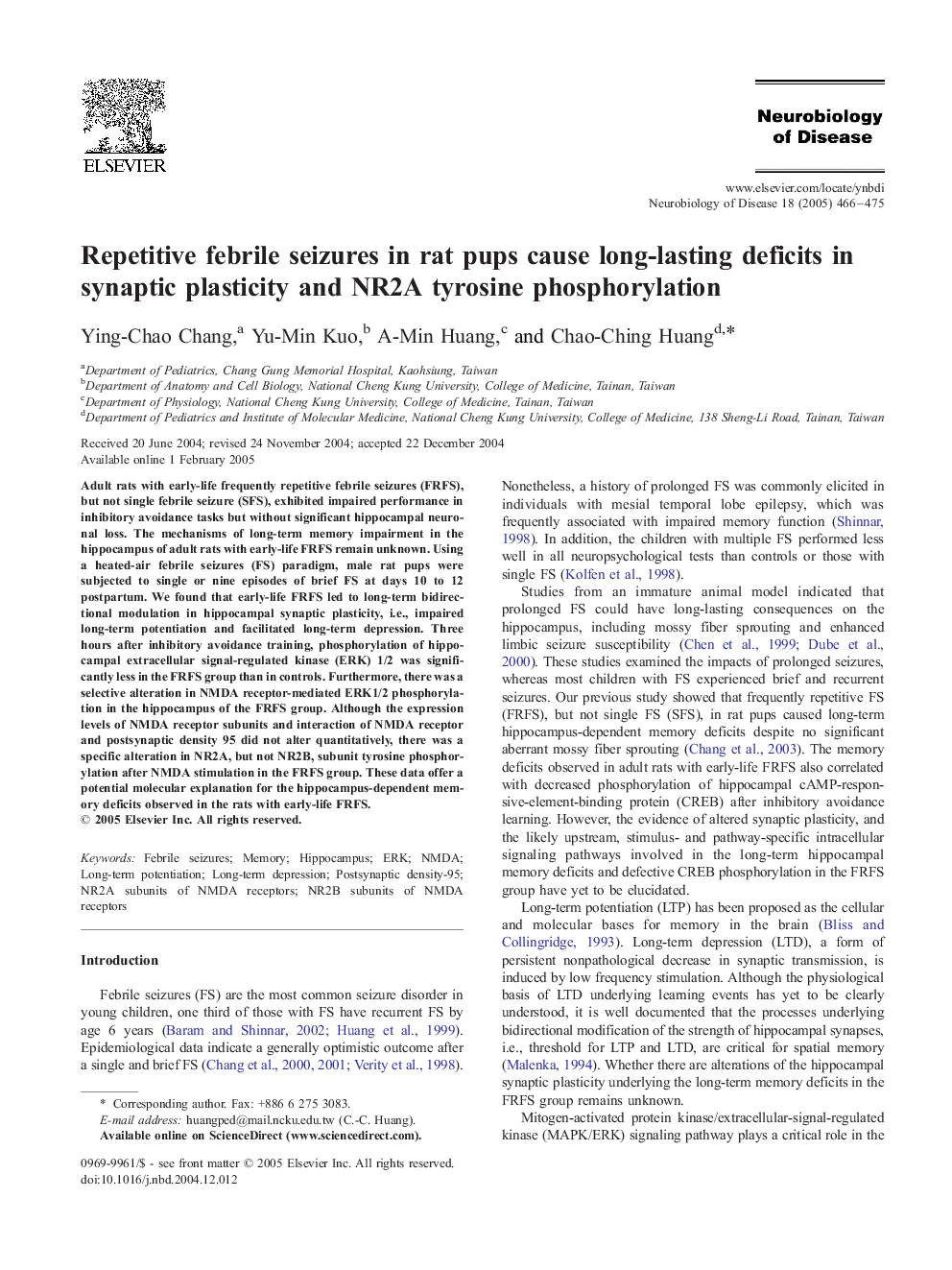| کد مقاله | کد نشریه | سال انتشار | مقاله انگلیسی | نسخه تمام متن |
|---|---|---|---|---|
| 9989768 | 1580765 | 2005 | 10 صفحه PDF | دانلود رایگان |
عنوان انگلیسی مقاله ISI
Repetitive febrile seizures in rat pups cause long-lasting deficits in synaptic plasticity and NR2A tyrosine phosphorylation
دانلود مقاله + سفارش ترجمه
دانلود مقاله ISI انگلیسی
رایگان برای ایرانیان
کلمات کلیدی
موضوعات مرتبط
علوم زیستی و بیوفناوری
علم عصب شناسی
عصب شناسی
پیش نمایش صفحه اول مقاله

چکیده انگلیسی
Adult rats with early-life frequently repetitive febrile seizures (FRFS), but not single febrile seizure (SFS), exhibited impaired performance in inhibitory avoidance tasks but without significant hippocampal neuronal loss. The mechanisms of long-term memory impairment in the hippocampus of adult rats with early-life FRFS remain unknown. Using a heated-air febrile seizures (FS) paradigm, male rat pups were subjected to single or nine episodes of brief FS at days 10 to 12 postpartum. We found that early-life FRFS led to long-term bidirectional modulation in hippocampal synaptic plasticity, i.e., impaired long-term potentiation and facilitated long-term depression. Three hours after inhibitory avoidance training, phosphorylation of hippocampal extracellular signal-regulated kinase (ERK) 1/2 was significantly less in the FRFS group than in controls. Furthermore, there was a selective alteration in NMDA receptor-mediated ERK1/2 phosphorylation in the hippocampus of the FRFS group. Although the expression levels of NMDA receptor subunits and interaction of NMDA receptor and postsynaptic density 95 did not alter quantitatively, there was a specific alteration in NR2A, but not NR2B, subunit tyrosine phosphorylation after NMDA stimulation in the FRFS group. These data offer a potential molecular explanation for the hippocampus-dependent memory deficits observed in the rats with early-life FRFS.
ناشر
Database: Elsevier - ScienceDirect (ساینس دایرکت)
Journal: Neurobiology of Disease - Volume 18, Issue 3, April 2005, Pages 466-475
Journal: Neurobiology of Disease - Volume 18, Issue 3, April 2005, Pages 466-475
نویسندگان
Ying-Chao Chang, Yu-Min Kuo, A-Min Huang, Chao-Ching Huang,